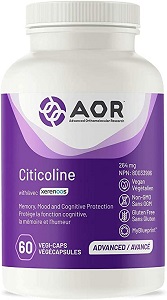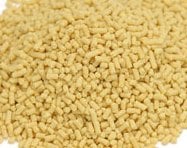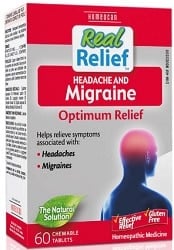Whether you occasionally have a tough time falling asleep or you just can’t seem to stay asleep at times, too many nights spent lying awake can catch up with you faster than you may think. And research is now showing that your waistline could be the first place you notice it – with imbalances in your blood sugar and your heart health not far behind.
What’s behind this dangerous domino effect? Well, without enough quality sleep, your body’s natural restorative cycles are disrupted, along with its levels of several key regulatory hormones-namely leptin, ghrelin, adiponectin and melatonin. While leptin and ghrelin influence your appetite by telling your body when to stop and start eating, adiponectin is essential for normal weight, blood sugar and cholesterol control.
Research indicates that melatonin plays a similar role, responsible for maintaining both a healthy weight and a healthy lipid profile-not to mention proper glucose metabolism. The bottom line: Cut back on your sleep, and you could be setting your body up for metabolic imbalance.
It’s clear that getting quality sleep every night should be one of your top priorities-especially if you’re overweight. But if you find that occasional sleepless nights are occurring despite even your best efforts to wind down, a little help may be in order to get the shuteye you need.
Nightly melatonin supplementation is a good place to start, with research indicating that it can promote more restful sleep while helping you to keep healthy weight and cholesterol levels. Along with melatonin, you can also turn to a few time-tested and research-supported botanicals to ensure a good night’s sleep: Studies show that a blend of Magnolia officinalis bark and Ziziphus spinosa seed extracts (also known as Seditol) may bind with sleep-promoting receptors to enhance relaxation and fight fatigue at the same time.
Hops also contains powerful natural sleep-promoting compounds, while lemon balm has been shown to aid occasional sleeplessness – at the same time improving your mood, stress responses and cognitive performance, too. Similarly, clinical study indicates that valerian is able to calm nerves and enhance sleep quality-along with passion flower, which is another safe and effective solution for better quality sleep. You’ll find all of these botanicals combined in Vitamin Research Products nightly formula Herbal Sleep.
Getting your sleep schedule back on track is half the battle when it comes to weight gain, but you can also help your body along with a blend of acacia gum polysaccharides and esterified fatty acids. Clinical trials show that this combo (called LeptinX, also available from VRP) can help balance serum leptin, adiponectin and insulin levels while assisting in the management of both weight and body fat measures-making it a safe and effective natural solution for those sometimes sleep-starved scale watchers.
References:
1. Knutson KL, Van Cauter E. Associations between sleep loss and increased risk of obesity and diabetes. Ann N Y Acad Sci. 2008;1129:287-304.
2. Shankar A, Syamala S, Kalidindi S. Insufficient rest or sleep and its relation to cardiovascular disease, diabetes and obesity in a national, multiethnic sample. PLoS One. 2010 Nov 30;5(11):e14189.
3. Broussard J, Brady MJ. The impact of sleep disturbances on adipocyte function and lipid metabolism. Best Pract Res Clin Endocrinol Metab. 2010 Oct;24(5):763-73.
4. American Sleep Apnea Association website, www.sleepapnea.org, accessed January 5, 2011.
5. Morselli L, Leproult R, Balbo M, Spiegel K. Role of sleep duration in the regulation of glucose metabolism and appetite. Best Pract Res Clin Endocrinol Metab. 2010 Oct;24(5):687-702.
6. Spiegel K, Tasali E, Penev P, Van Cauter E. Brief communication: sleep curtailment in healthy young men is associated with decreased leptin levels, elevated ghrelin levels, and increased hunger and appetite. Annals of Internal Medicine. 2004;141(11):846-850.
7. Nakagawa Y, Kishida K, Kihara S, Yoshida R, Funahashi T, Shimomura I. Nocturnal Falls of Adiponectin Levels in Sleep Apnea with Abdominal Obesity and Impact of Hypoxia-Induced Dysregulated Adiponectin Production in Obese Murine Mesenteric Adipose Tissue. J Atheroscler Thromb. 2010 Dec 1. Published Online Ahead of Print.
8. Vasseur F. Adiponectin and its receptors: partners contributing to the "vicious circle"leading to the metabolic syndrome? Pharmacol Res. 2006 Jun;53(6):478-81.
9. Ukkola O, Santaniemi M. Adiponectin: a link between excess adiposity and associated comorbidities? J Mol Med. 2002 Nov;80(11):696-702.
10. Renaldi O, Pramono B, Sinorita H, Purnomo LB, Asdie RH, Asdie AH. Hypoadiponectinemia: a risk factor for metabolic syndrome. Acta Med Indones. 2009 Jan;41(1):20-4.
11. Agil A, Navarro-Alarcà n M, Ruiz R, Abuhamadah S, El-Mir MY, Và zquez GF. Beneficial effects of melatonin on obesity and lipid profile in young Zucker diabetic fatty rats. J Pineal Res. 2010 Nov 19. Published Online Ahead of Print.
12. Contreras-Alcantara S, Baba K, Tosini G. Removal of melatonin receptor type 1 induces insulin resistance in the mouse. Obesity (Silver Spring). 2010 Sep;18(9):1861-3.
13. Olde Rikkert MG, Rigaud AS. Melatonin in elderly patients with insomnia. A systematic review. Z Gerontol Geriatr. 2001 Dec;34(6):491-7.
14. Nunes DM, Mota RM, Machado MO, Pereira ED, Bruin VM, Bruin PF. Effect of melatonin administration on subjective sleep quality in chronic obstructive pulmonary disease. Braz J Med Biol Res. 2008 Oct;41(10):926-31.
15. Bourne RS, Mills GH, Minelli C. Melatonin therapy to improve nocturnal sleep in critically ill patients: encouraging results from a small randomised controlled trial. Crit Care. 2008;12(2):R52.
16. Koetter U, Barrett M, Lacher S, Abdelrahman A, Dolnick D. Interactions of Magnolia and Ziziphus Extracts with Selected Central Nervous System Receptors. J Ethnopharmacol. 2009 Jul 30;124(3):421-5.
17. LaValle J, Pelletier M, LaValle L, Barrett M, Koetter U, Dolnick D. A Proprietary Blend of Magnolia and Ziziphus Extracts Assists with Sleep: An Open-Label Assessment. Unpublished study.
18. Wohlfart R, HÃ nsel R, Schmidt H. The Sedative-hypnotic Principle of Hops. Planta Med. 1983 Jun;48(6):120-3.
19. Soulimani R, et al. Neurotropic action of the hydroalcoholic extract of Melissa officinalis in the mouse. Planta Med. 1991;57:105-109.
20. Kennedy DO, Little W, Scholey AB. Attenuation of laboratory-induced stress in humans after acute administration of Melissa officinalis (Lemon Balm). Psychosom Med. 2004 Jul-Aug;66(4):607-13.
21. Houghton PJ. The scientific basis for the reputed activity of Valerian. J Pharm Pharmacol. 1999;51:505-12.
22. Leathwood PD, Chauffard F, Heck E, Munoz-Box R. Aqueous extract of valerian root (Valeriana officinalis L.) improves sleep quality in man. Pharmacol Biochem Behav. 1982;17:65-71.
23. Jellin JM, Gregory PJ, Batz F, Hitchens K, et al. Pharmacist’s Letter/Prescriber’s Letter Natural Medicines Comprehensive Database. 5ht ed. Stockton CA. Therapeutic Research Faculty. 2003. p1014.
24. Fragala MS, Kraemer WJ, Volek JS, et al. Influences of a dietary supplement in combination with an exercise and diet regimen on adipocytokines and adiposity in women who are overweight. Eur J Appl Physiol. 2009;105:665-72.





